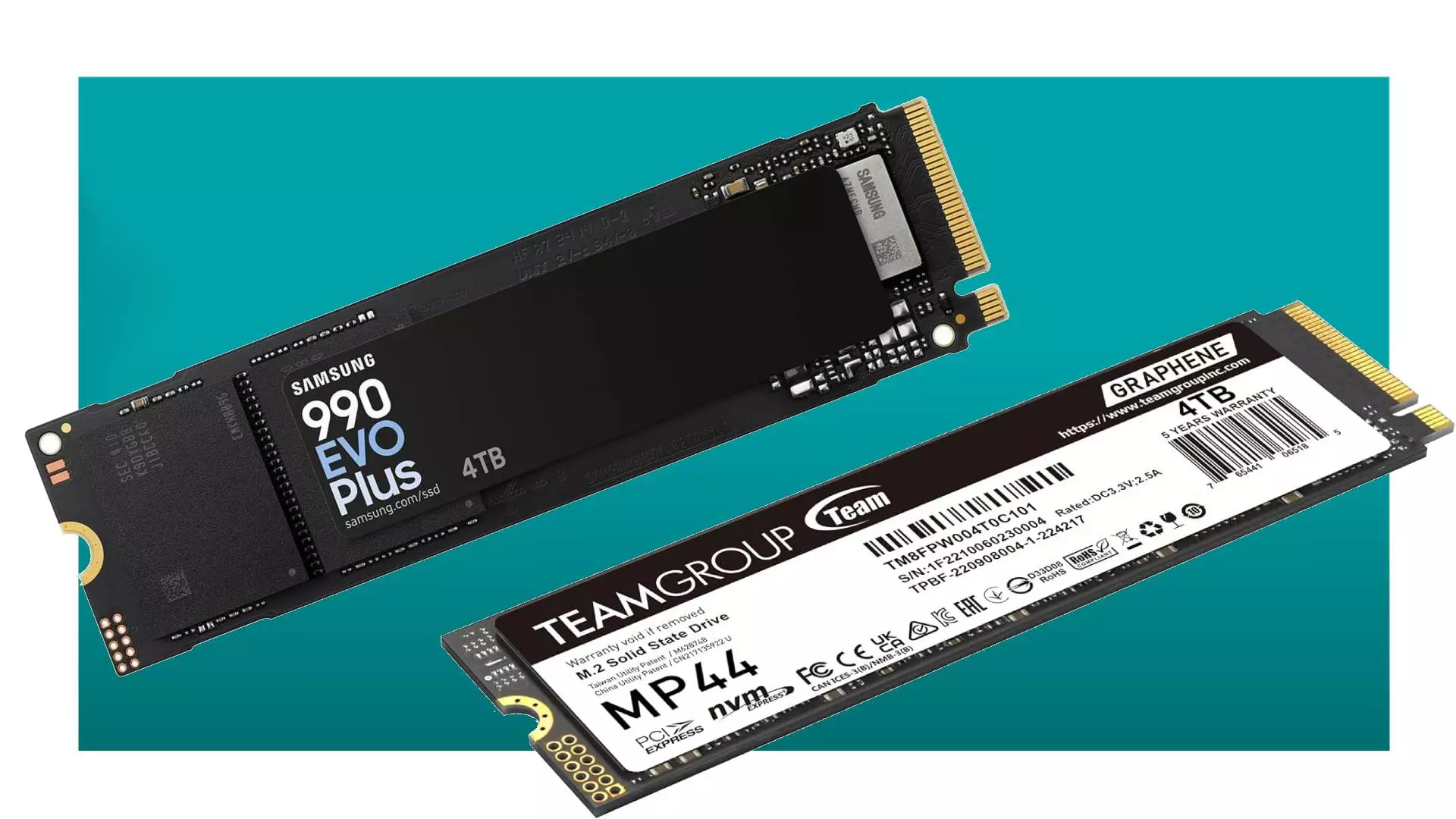In the expansive world of data storage, the battle between Solid State Drives (SSDs) and Hard Disk Drives (HDDs) surges on. Let’s not sugarcoat it: for most users, particularly those who just need to archive pictures, movies, and personal files, an HDD suffices. They provide a cost-effective means of storage that works well for the average user. The magnetic technology behind HDDs might seem archaic compared to the cutting-edge innovations of modern SSDs, but for simple storage needs, HDDs fulfill their purpose.
However, this perspective shifts dramatically when we pivot to gamers and those engaged in resource-intensive tasks. When it comes to the performance demands of modern gaming, the urgency for speed becomes glaringly apparent. Gamers need minimal load times and seamless execution – facets that SSDs deliver with unmatched grace. Swapping your HDD for an SSD could well be the catalyst that transforms the gaming experience from mere play into an exhilarating journey.
Why SSDs are Game Changers
The advantages of an SSD, particularly in gaming, are practically indisputable. The speed attributed to SSDs stems from their data storage methodology; they inhabit the realm of flash memory, allowing for faster read and write times. This technological leap exemplifies why gamers routinely opt for SSDs. The instant access to game files translates to significantly quicker load times, rendering waiting times practically obsolete. Imagine launching a resource-hungry game, only to be faced with moments of frustrating delays – it’s a scenario many gamers might dread.
Furthermore, SSDs aid in maintaining the integrity and responsive quality of in-game performance. No more stuttering graphics or lag due to slow data access – modern gaming demands the fluidity that only SSDs can provide.
Top Contenders: The Samsung 990 Evo Plus and Team Group MP44
When it comes to selecting the ideal SSD, the market offers some compelling options. Two strong contenders that have recently made headlines are the Samsung 990 Evo Plus and the Team Group MP44. Both models boast an impressively large 4TB capacity and customizable performance metrics that cater to different user needs.
At a price of $250, the Samsung 990 Evo Plus emerges as a prime choice. Praised for its remarkable performance, the Evo Plus is often favored for not only its speed but also its temperature control. During performance tests, it operated coolly, even under heavy load, which is a critical aspect for gaming rigs. When hardware runs hot, it risks throttling performance. The Evo Plus ensures gamers can enjoy extensive play sessions without the imminent threat of overheating.
Moreover, it’s crucial to acknowledge the rival offering from Team Group, the MP44. Despite being slightly cheaper at $240, this drive does come with specific caveats; it tends to run warmer than its Samsung counterpart, which can pose challenges without proper cooling solutions. Nevertheless, its impressive average write speed – holding steady at 5,900 MB/s for significant durations – makes it a tantalizing option for data-hungry scenarios.
Cooling Considerations and Performance Implications
When selecting an SSD, it is essential not to overlook the implications of thermal management. The MP44’s propensity to run hot underscores the necessity of adequate cooling solutions. Gamers who wish to get the most out of this drive must consider investing in an M.2 heatsink to ensure continuous performance without thermal throttling. For those who fail to address these cooling concerns, they run the risk of undermining the very speed advantages SSDs promise. Cooling systems are no longer just optional accessories; they are fundamental components of modern builds.
Conversely, the Samsung 990 Evo Plus, with its inherently better thermal management, emerges as the safer bet for gamers looking to push their systems to the limits without worrying about unnecessarily high temperatures. Ultimately, while the choice may boil down to price, performance sustainability under operational stress should be at the forefront of decision-making.
While HDDs still serve a purpose for general storage, the leap to SSDs, especially in gaming contexts, cannot be overstated. With SSDs leading the charge in terms of speed and performance, the transition ultimately shapes the gaming landscape and contributes to a more dynamic digital experience.

